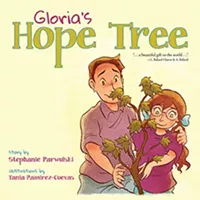If we raised Adam Smith from the dead, would he be, do you think, a zombie or a werewolf? Or maybe a vampire? (Aren't vampires always moving stuff with invisible forces?) And if we also brought back Karl Marx, would he make like Van Helsing and run a wooden stake through Smith's heart? And wouldn't that be awesome? But I digress. The point here is zombies, or maybe vampires. And also capitalism. Which may seem like two entirely unrelated topics, but Annalee Newitz may change your mind.
In Pretend We're Dead: Capitalist Monsters in American Pop Culture, Newitz argues that the particulars of many of our most popular monsters memes are, in part, responses to capitalism and its many discontents. "[C]apitalist monsters," she writes, "embody the contradictions of a culture where making a living often feels like dying."
Some of the monsters Newitz means are the zombies and vampires and werewolves of the world. But she also looks at serial killers, mad doctors, robots and -- cover the kids' eyes -- the mass media. (I'll explain that last one in a bit.) In each case, Newitz argues that what makes these monsters frightening is not so much the ways in which they are different from us but the ways in which they resemble us and our current context a little too closely for comfort. Thus, not all monsters count as "capitalist monsters." Newitz explicitly excepts über aliens, cloned dinosaurs, super snakes (on planes or otherwise) and other clearly "other" monsters from the mix of her analysis. She writes instead about the monsters that show us that which we most fear finding in ourselves. Or monsters that extrapolate from the worst we see in those in positions of authority over us in the capitalist hierarchy. (Aristocrat vampires sucking the blood of the masses and whatnot.)
Take serial killers. (Please.) Yes, the serial killer mass produces death; let's get that out of the way. But Newitz goes deeper than that. The term "serial killer" was inspired by the old serial movies: ongoing, episodic adventures like The Phantom, which would always end on a cliffhanger, never coming to a conclusion, always leaving you wanting more. So it goes with the serial killer. He (almost always "he") kills and kills and kills again. There's no larger arc, no purpose, no satisfaction, no closure, no resolution. Just an endless cycle of random, anonymous, meaningless consumption. (Sometimes literally; think Jeffrey Dahmer.) It's usually up to the detective or other hero to at last impose a conclusion, reassuring us that, yes, life does still have meaning.
And so the popularity of serial killer stories -- from the "true crime" book genre to movies like The Silence of the Lambs, Psycho and Se7en -- reflects in part our own anxieties about consumer capitalism: meaningless pleasures that never satisfy, and an acute alienation from other people that, at its extreme, allows us to view other human beings (and ourselves to be viewed) as mere commodities to be consumed along with everything else.
Let's skip over the zombies and robots (and robot zombies ... aw man, somebody should totally make a movie with those) and skip to the vilest capitalist monster: the mass media. Skeptical? I was too until Newitz started giving examples. Consider: The Truman Show, Pleasantville, Nurse Betty, the entire Matrix trilogy. Or go back further, to Network, Tron, Logan's Run. Though they each have different takes on the theme, each presents a horror (OK, "slightly creeped out feeling" in the case of Pleasantville) in which even our interior lives -- our dreams, our desires, our ability to silently protest, even our very perceptions -- are overrun by television, movies, video games and, at last, futuristic brain plugs. "What we see in capitalist monster stories about mass media," writes Newitz, "are the fears aroused by an information economy where the act of storytelling itself has been co-opted by the marketplace."
Well, despite all these monsters, Newitz's final analysis is not a cynical one. We don't have to be the helpless damsels in distress who can only scream and turn their heads as the monster approaches. We can engage the cultural artifacts of a consumer capitalist culture with a "negotiated reading," neither outright rejecting nor thoughtlessly consuming what we are offered. And the very presence of capitalist monsters in popular culture is itself encouraging. Mass media is "passing on the very sorts of tales one would expect mass culture to suppress."
So yes, there's a monster under your bed and another in your closet. There are ghosts in the machine and the undead may crawl from your TV set. You could burn the bed and kill your television, but, with Marx as a mummy by your side, you could also try to strike up a conversation with the monsters. Hey, it worked in The Sixth Sense. Sweet dreams.
Pretend We're Dead: Capitalist Monsters in American Pop Culture
Annalee Newitz (Duke University Press, 232 pages, $21.95)
Speaking of 4.00000
-
Letters to the Editor
Dec 19, 2007 -
Checking it Twice
Dec 19, 2007 -
Racial Whiplash
Dec 19, 2007 - More »
Latest in Books
More by Thomas Bell
-

Something Like a 'Phenomena'
Oct 4, 2006 -

My Antihero, Zero
Sep 20, 2006 -

The Neighborhood Of God and The Devil
Aug 23, 2006 - More »
Calendar
-
 RuPaul's Drag Race Werq The World Tour 2025 @ Ovens Auditorium
RuPaul's Drag Race Werq The World Tour 2025 @ Ovens Auditorium -
 Boulet Brothers Dragula: Season 666 Tour @ N.C. Music Factory
Boulet Brothers Dragula: Season 666 Tour @ N.C. Music Factory -
 Jim Norton @ The Underground
Jim Norton @ The Underground -

Trap & Paint + Music Bingo @ Blush CLT
-

Trap & Paint (Hookah Edition) @ Blush CLT










